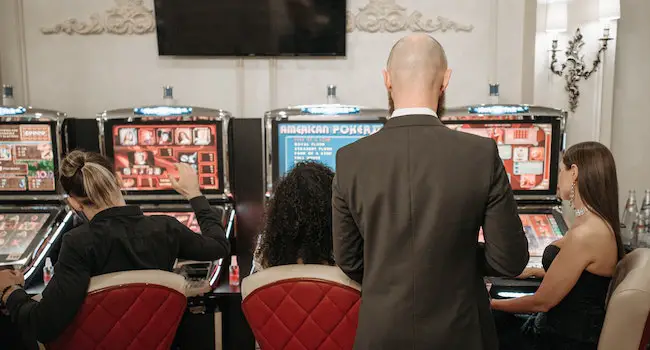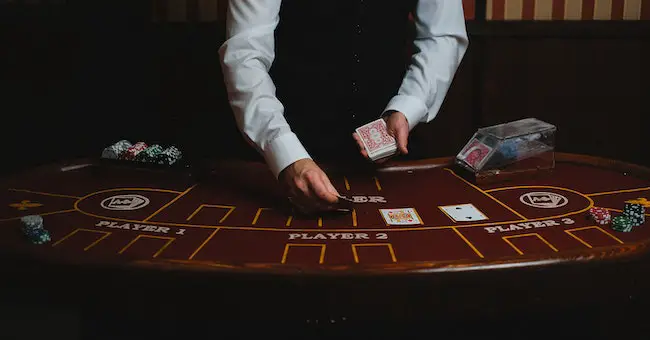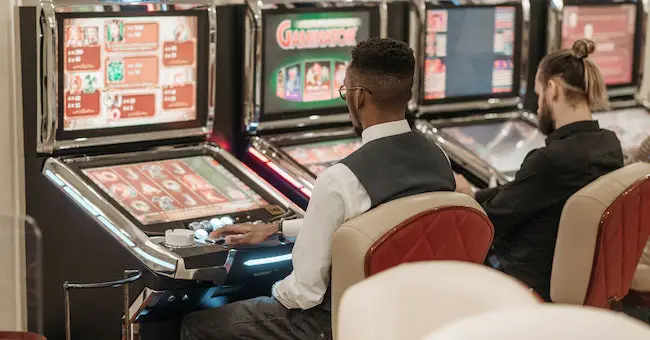How To File A Lawsuit Against A Casino?
Filing a lawsuit against a gambling establishment requires many steps and factors to consider. It’s crucial to go through this procedure carefully and seek legal advice from a professional when possible. This is a basic outline of the procedure for starting lawsuits against casinos.
Establish The Reasons To Bring The Suit

It is the first step to establishing the legal basis for your case against a casino. The most common grounds for bringing a lawsuit against casinos are personal injury, breach of contract, negligence, or fraud. Knowing the basis of your case will determine the next steps.
Gather evidence: A strong argument requires you to gather evidence that can prove your assertion. This could involve gathering documents, photos, videos, eyewitness testimony, or other evidence to prove the truth and support your assertions. It is essential to keep complete records of all pertinent data.
Get an attorney’s advice: Engaging an experienced lawyer specializing in civil litigation and casino-related cases will greatly increase your odds of success. An attorney can help you navigate the legal procedure, evaluate the strengths of your case, and offer professional guidance on the best strategy. They can help you ensure that you meet all deadlines and legal requirements.
Make a formal complaint and submit it. With the help of your attorney, you’ll need to prepare an official complaint that outlines the specifics of your claim against the gaming establishment. The complaint should be clear and concise. It should state the details of the situation, the legal basis of your case, and the damages or relief sought. Your lawyer will file the complaint with the appropriate court, complying with the rules of procedure.
Serving the complaints: After the complaint has been filed, it has to be properly served on the defendant(s) according to the applicable service rules. This means sending a copy of the complaint and other required documentation to the legal representative of the casino. The proper procedure ensures that the defendant(s) receive notice of the lawsuit and an opportunity to reply.
Participate in the discovery process: Following the time that the lawsuit is initiated, both parties participate in the discovery process by exchanging documents and information relevant to the matter. These could include written questions, requests for the documents to be produced, depositions, and other discovery methods. Your lawyer can guide you through the process to ensure a successful case.
Go to trial or settle: Based on the specific circumstances, the case can go to trial or come to a settlement. Trials are when you present witnesses, evidence, and arguments to an impartial jury or judge, who makes a final decision. Settlement negotiations may occur at any point in the litigation process when both parties agree that the case can be settled without having to go to trial.
It is important to remember that the steps and procedures may differ according to the jurisdiction and complexity of the matter. A consultation with an experienced attorney who can provide individualized advice based on your specific situation is recommended when contemplating an action against the casino.
Does A Casino Have The Ability To Hold Your Winnings?

It is important to remember that although certain situations could be a reason to temporarily hold winnings, casinos must, in the end, conform to any applicable rules and laws. Suppose you think the casino is unlawfully keeping your winnings from you or is in violation of its own rules. In that case, seeking legal advice or consulting with the relevant regulator to resolve the issue and claim your rights is advised.
Casino Policy And Terms: Casinos usually have terms and policies that govern their games‘ play and the distribution of winnings. These rules can differ between casinos; therefore, you must be familiar with the rules specific to the casino you’re playing at. Terms and conditions can define situations in which casinos have the power to delay or withhold the payout of winnings.
Verification Procedure: Casinos must maintain the security of their operations and adhere to the regulations. During this process, they can conduct verification checks to verify the authenticity and eligibility of the winners. This could include checking your personal information, age, and other relevant legal requirements, like providing evidence of identity. These screenings aim to deter financial fraud, money laundering, and underage gambling.
Dispute Resolution: In certain situations, casinos may suspend winnings in the event of a dispute between the player and the institution. It could happen if there is evidence of cheating, rule-breaking, or other suspicious activities. Casinos may have to investigate the matter and settle the issue before making the payouts. Casinos must be able to ensure the highest standards of fair and transparent gaming, which may mean temporarily keeping winnings until the issue is settled.
Tax Obligations: In the case of your jurisdiction, casinos might be required to withhold a percentage of the winnings you earn for tax reasons. This is particularly true for large sums. In these situations, casinos may deduct taxes that are required from your winnings before paying the remainder to you. It is recommended to be aware of the tax laws applicable to the state where you are playing to be aware of any possible effects on winnings.
Legal Obligations or Debts That Are Not Paid: Suppose you are in debt or have obligations legally owed to the gambling establishment, for example, a not-paid marker (casino credit) or legal disputes that are not resolved. In that case, the casino can decide to hold your winnings to pay these obligations. But this is generally considered the last option, subject to legal procedures and rules.
What Can You Do To Bring A Lawsuit Against A Las Vegas Casino?

It’s crucial to remember that the exact procedures and steps may differ according to the specifics of your case and the location of the court. A close relationship with an experienced lawyer throughout the process is essential to ensuring you efficiently understand the legal complexities of suing the Las Vegas casino.
Hire an Attorney: The first step to suing the Las Vegas casino is to find an attorney specializing in litigation involving casinos and gaming. Find the right attorney who is acquainted with the regulations and laws governing the casino industry in Las Vegas. They can guide you through the legal procedure, evaluate the advantages of your case, and offer advice from an expert.
Collect Evidence: A strong case will require collecting evidence to back your accusations against the gambling establishment. Find any documents, photos, videos, documents, or other evidence that supports your assertions. It could be surveillance footage, transaction records, emails, or eyewitness accounts. Keep all evidence relevant to establishing a convincing argument.
Determine the Reasons to Bring the Suit: Choose the most appropriate legal basis for your suit. Common grounds to sue casino owners could be personal injury, breach of contract, negligence, fraud, or an infraction of gambling regulations. The lawyer you hire will determine the right legal theory and formulate your case according to it.
Find Out More About the Law And Follow the Legal Standards: Learn about the legal requirements required to file a lawsuit in Las Vegas. This includes knowing the limitations period, which determines the deadline by which a lawsuit has to be filed. Be sure to follow all rules of procedure and deadlines so that your case is not dismissed due to technical issues.
File a Complaint: With the help of your lawyer, you can draft an official complaint describing the specifics of your claim against the gambling establishment. The complaint should outline the specifics of the situation, the legal basis for your claim, and the amount of relief or damages you seek. Your lawyer will file this complaint before any appropriate courts located in Las Vegas.
Send the Complaint: The complaint should be properly served on the defendant(s), which in this instance would be the Las Vegas casino or its legal representatives. Be sure to send the complaint to the casino following the prescribed service methods outlined by the courts. This ensures that the casino is notified of the lawsuit and has the opportunity to respond.
Participate in the Process of Discovery: When the lawsuit is filed after the lawsuit is filed, both parties must participate in the discovery process. This involves sharing pertinent documents, information, and evidence. Your lawyer will help you navigate this process. It could comprise interrogatories (written questions), requests for documents to be produced, depositions, and other methods of discovery.
Settlement or Trial: In a dispute, the case could go to trial or settle. Trials require presenting evidence, witnesses, and arguments before an impartial jury or judge makes a final decision. Settlement negotiations may occur at any point in the litigation process if both parties reach an agreement that is mutually agreed upon and the lawsuit is settled without going to trial.
Are Casino Lawyers Vying For Their Rights?

If you are facing legal issues or disputes that involve the casino, it’s recommended that you consult with lawyers that specialize in cases involving casinos. Their expertise, knowledge, and resources will greatly increase your chances of success when navigating the litigation involving casinos and achieving a favorable resolution.
Expertise in a Specific Area: Lawyers who focus on cases involving casinos have an in-depth understanding and experience of how to handle legal issues in business. They are well-versed in the specific laws and regulations and the common problems in the casino context. They are aware of the complexity of suing casinos and can provide tips and strategies specific to these cases.
Understanding the Gaming Regulations: A myriad of complex gaming regulations and licensing rules govern casinos. Lawyers who specialize in cases against casinos are well aware of these laws and how they affect the operations of casinos. They are knowledgeable about the legal framework that regulates casinos and can navigate the legal system to create strong arguments against them.
Experiences with Disputes Involving Casinos: Attorneys who concentrate on cases involving casinos are experienced in settling a wide array of gambling-related disputes. These include personal injury cases, breach of contract cases, negligence, fraud and discrimination, wrongful termination, and intellectual property litigation. Their experience gives them the skills needed to investigate the issue, analyze it, and then prosecute difficult casino-related disputes.
Acquaintance With Casino Policies and Procedures: Lawyers who focus on cases involving casinos have intimate knowledge of the policies and procedures of casinos. They know how casinos operate in their systems, including internal processes, security, procedures, and customer relationships. This understanding allows them to spot potential risk areas, collect pertinent evidence, and develop efficient legal strategies tailored to the particular circumstances of a particular casino case.
Resources and Connections: Lawyers who concentrate on cases against casinos usually have established professional networks and resources tailored to the casino industry. They could have relationships with industry experts, investigators, forensic accountants, investigators, and other professionals who can be valuable resources in constructing the case. These professionals can help secure the evidence needed, conduct an investigation, and bolster your legal standing.
Negotiation and Trial Techniques: Highly skilled lawyers specializing in casino cases have an impressive ability to negotiate and present arguments. They are aware of how important it is to effectively advocate for clients’ rights and interests. They are skilled in negotiation strategies, settlement discussions, and courtroom advocacy. They can help you navigate the legal procedure, regardless of whether you seek the fairest settlement or present a compelling argument at trial.
Settlements For Casino Lawsuits?

It’s crucial to understand that the exact rules and regulations of a settlement for a lawsuit can differ significantly depending on the specifics of the particular case, the negotiation capability of the litigants, and many other elements. Every settlement is unique and tailored to the parties’ particular conditions and goals.
Agreements on Confidentiality and Non-Disclosure: In many instances, settlements of casino lawsuits include the use of confidentiality agreements, also known as non-disclosure agreements. These agreements prevent the parties from disclosing the details of the settlement, the amount involved, or other specifics of the resolution. These confidentiality provisions are standard in settlements to protect the privacy and reputation of the parties involved.
Compensation in money: One of the most important elements of a settlement in a lawsuit against a casino is the payment of monetary compensation. The settlement amount is usually agreed upon between the parties and could include different elements, including the claim, the quality of evidence, potential damages, and other pertinent considerations. The amount of compensation may vary significantly based on the particular circumstances of the case.
Release of Responsibility: When settling a case in a settlement, the plaintiff (the one who filed the suit) is usually required to discharge the casino of any liability or claims arising from the dispute or incident. In other words, once the plaintiff has reached and accepted the settlement, the casino cannot pursue any legal lawsuit against it on the same issue.
Rejection of the lawsuit: If a settlement is reached, the parties typically submit a joint stipulation of dismissal in front of the court. The stipulation asks for the court’s dismissal of the suit based on the settlement. If the court accepts the settlement agreement, the lawsuit is officially dismissed, and the matter is declared closed.
In the absence of admitting guilt or responsibility, settlements usually include a statement explicitly declaring that the settlement is not a confession of guilt or liability on the part of the casino. This implies that the casino isn’t acknowledging fault or wrongdoing when signing the settlement. This language safeguards the casino’s reputation and permits them to settle the issue without revealing fault.
Elimination of lengthy litigation: Settlements in a casino lawsuit allow each party to stay clear of the cost, time, and anxiety of lengthy litigation. In settling a dispute, both parties can settle their disagreement quicker and more efficiently, saving time, legal fees, and emotional anxiety.
Reputation and confidentiality are protected. Settlements enable each party to keep their confidentiality and preserve their reputations. The plaintiff could be beneficial if they prefer not to keep their details secret. For casinos, settling an action can reduce reputational or negative publicity damages that might result from a public trial.
FAQ’s
What are the common reasons to file a lawsuit against a casino?
- Breach of contract: If the casino fails to fulfill its contractual obligations.
- Personal injury: If you sustain injuries due to unsafe conditions or negligence within the casino premises.
- Unfair or deceptive practices: If the casino engages in fraudulent or deceptive activities that harm you.
- Gambling-related disputes: For example, disputes over winnings, malfunctioning machines, or disputes with other players.
What steps should I take before filing a lawsuit?
- Gather evidence: Collect any relevant documents, photographs, videos, or other evidence that support your claim.
- Document incidents: Keep detailed records of the events, including dates, times, locations, and people involved.
- Contact an attorney: Consult with a lawyer experienced in casino law to evaluate the strength of your case and guide you through the process.
Where should I file the lawsuit?
Determine the appropriate jurisdiction for filing your lawsuit. It is typically the court in the location where the casino is located. Familiarize yourself with the specific legal requirements and procedures for filing a lawsuit in that jurisdiction.
What are the potential outcomes of a lawsuit against a casino?
- Compensation: If your lawsuit is successful, you may be entitled to financial compensation for damages or losses.
- Settlement: In some cases, the parties may reach a settlement agreement outside of court.
- Dismissal: It’s also possible for the court to dismiss your case if it lacks merit or if there are procedural issues.
What is the statute of limitations for filing a lawsuit against a casino?
Statute of limitations varies by jurisdiction and the type of claim. It determines the time limit within which you must file your lawsuit after the incident occurred. Consult with an attorney to understand the specific statute of limitations for your case.
How long does a lawsuit against a casino take?
The duration of a lawsuit can vary significantly depending on various factors, including the complexity of the case, court availability, and the willingness of the parties to settle. Lawsuits can take months or even years to reach a resolution.
















